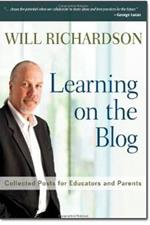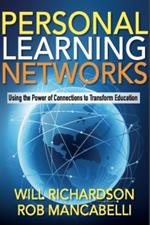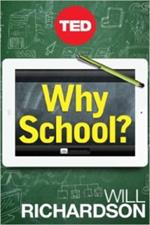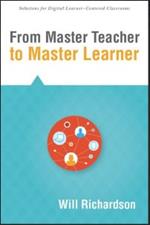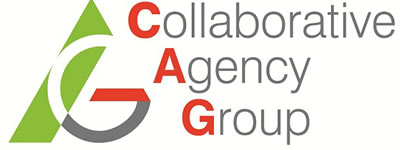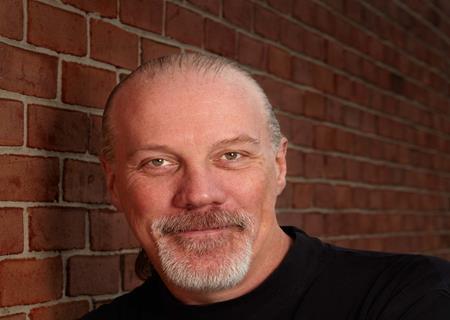
30 Jun Will Richardson

Speaker: Will Richardson
Author, education thought leader, and long-time high school teacher
Speech Topics Include:
- Educating Modern Learners: The Opportunities and Challenges of Schooling in the Connected World
- The Storm Ahead: Navigating Education’s Next Ten Years of Disruption
- Exploring New Literacies for a World of Networked, Self-Directed Learners and Makers
- From “Old School” to “Bold School”: Making the Jump from Traditional to Modern Learning
- This is Personal: Modern Learning in Self-Determined Classrooms
A parent of two teen-agers, keynote speaker Will Richardson has spent the last dozen years developing an international reputation as a leading thinker and writer about the intersection of social online learning networks and education. He was one of a handful of original education bloggers (willrichardson.com) and his work has appeared in numerous journals, newspapers, and magazines such as Ed Leadership, District Administration, Education Week, The New York Times and English Journal. He is an outspoken advocate for change in schools and classrooms in the context of the diverse new learning opportunities that the Web and other technologies now offer.
Will has authored six books, most recently From Master Teacher to Master Learner (2015, Solution Tree Press) and Freedom to Learn (2016, Solution Tree Press). In total, his books have sold over 150,000 copies worldwide.
A former public school educator of 22 years, Will is a co-founder of Modern Learner Media and co-publisher of ModernLearners.com which is a site dedicated to helping educational leaders and policy makers develop new contexts for new conversations around education. Over the past eight years, he has spoken to hundreds of thousands of educators in over a dozen countries about the merits of online learning networks for personal and professional growth.
Educating Modern Learners: The Opportunities and Challenges of Schooling in the Connected World
The last 10 years have seen an explosion of devices and connections that are changing the landscape of education and learning. We now carry massive storehouses of information and knowledge as well as billions of potential teachers in our pockets and backpacks. As a result, a new world of connected, networked, self-directed learning and creating is upon us, with huge implications for schools. What constitutes an education now that we can learn deeply in informal spaces outside the school walls? What are the new roles of teachers when content knowledge is ubiquitous? And how do we best prepare our students for the modern learning worlds in which they will live and work? We’ll tackle these and other questions as we explore the important and complex changes and shifts that come with ubiquitous access to the Web.
The Storm Ahead: Navigating Education’s Next Ten Years of Disruption
The Web poses a difficult challenge to the fundamental premises on which our concepts of school and education are based. Knowledge, information, teachers, and technologies are now ubiquitously accessible using the devices we carry in our pockets. We can connect, communicate, and create in ways that only few could have dreamed even a decade ago. Already, a fast-growing number of schools around the world are embracing these new contexts for their work and shifting practice in significant ways. But given the speed and scope of the disruption we’re already seeing, even those changes may not be enough. In this session, we’ll look at the challenges and opportunities for schools, discuss current best practices in schools who are moving significantly and swiftly into the modern world, and frame out a roadmap for creating long term, sustainable change that best serves our students moving forward.
Exploring New Literacies for a World of Networked, Self-Directed Learners and Makers
While it may seem like it, the biggest advance of the last 15 years has not been the Web and hundreds of technologies that connect us to it. No, the biggest shift is what that connectedness brings us, the new reality that each one of us can now stand as the central organizing force in our own learning, education, and work. With our growing access to the sum of human knowledge and billions of people around the world, we decide what we need to learn, when we need to learn it. We develop our own pathways to an “education.” And we as individuals have the power to create and share and bring beautiful, meaningful, important work into the world. The institutions that used to mediate those interactions, schools, publishing houses and corporations among them, are all now struggling to maintain relevance.
In this moment, those who understand the powerful affordances of the Internet to learn and create will flourish, and those who understand how to leverage those affordances for the greater good will lead. That requires a whole set of new literacies, ones that deal with not just reading and writing but collecting, creating, connecting, sharing, and sense making. In this institute, we’ll explore these shifts, and we’ll begin to develop a context and a practical framework for helping our students become literate, self-directed masters of learning and making in this new, interconnected world.
From “Old School” to “Bold School”: Making the Jump from Traditional to Modern Learning
The main premise upon which schools were founded, that content and knowledge and teachers are scarce, has literally been turned on its head by the Web. Today, we carry the sum of human knowledge and access to millions of potential teachers in the phones in our pockets. And in a host of other ways, the idea of a “traditional” school is fading in its relevance to the new ways we and our students can learn. Given that reality, what changes? How do we rethink our roles as schools, classrooms and educators at a moment when our students have a growing number of options to cobble together an “education?” This session will discuss the paths that a number of “bold schools” are taking to fundamentally redefine their value as places of learning, not of content and teachers. We’ll discuss the challenges of remaining an “old” school, define the main characteristics of “bold” schools, look at schools that are already bridging the gap, and suggest ways to begin relevant, “bold” conversations around real change in our own schools and communities.
This is Personal: Modern Learning in Self-Determined Classrooms
In our fervor to create “personalized learning” experiences for students, we miss the most important affordance of this new, content and teacher rich networked world. The real transformation that the Web creates is the license it gives us to learn whatever we want or need, when we need to, with whomever we deem helpful in learning it. While “personalization” helps teachers deliver curricular outcomes to students in potentially more engaging ways, the “personal” learning opportunities we now have allow students (and we ourselves) to create their own curriculum, their own classrooms, find their own teachers, and contribute new, unique knowledge to the world on their own. In other words, students who have mastered personal learning using the web and the many tools now connected to it are empowered to learn without us.
Despite the huge challenges that come with that line of thought, that now must be our primary goal as educators in a world abundant with knowledge and content. If we neglect to develop in our children the dispositions and attitudes to take full advantage of this modern learning world, and if we deny them opportunities in school to let them learn personally around those subjects they have a passion for, we will not be sending them out in the world “learning ready.”
This session will be built around a conversation focused on what changes as we move to a world filled with opportunities for “personal learning.” We’ll develop a lens for questions around literacy, the role of teachers and schools, access, shifting cultures and more.

